- Home
- James Rollins
The Doomsday Key Page 32
The Doomsday Key Read online
Page 32
Monk spotted heat signatures against the cold snow. He raised his rifle to his cheek and began firing. Painter did the same. They took out a few men, sending them sprawling. But aiming was a challenge as the Sno-Cat bounced and rattled over the ice and snow.
Some soldiers ran for cover. Others fled upslope.
A barrage of return fire blasted from behind the Hagglund. Pings rang out as rounds spattered against the metal grille of the Sno-Cat. Monk heard the telltale crunch of the windshield being struck.
The driver didn’t slow but turned, doing his best to keep the bulk of the Hagglund between them and the shooters. Other soldiers fired at them, hidden behind chunks of ice or boulders.
Still, the Cat was a difficult target in the snowstorm, and the Norwegian did his best to keep moving, to slalom one way then the other.
As they climbed the slope, a new noise intruded: the angry whine of snowmobiles. The advance team had swung back around and was headed to the aid of the others.
While the Sno-Cat might be a shark circling the Hagglund, the smaller snow machines were leaner, swifter predators.
Their position was about to be overrun.
1:41 P.M.
Through his goggles, Painter watched the swarm of ten snowmobiles dive toward the Hagglund. The small vehicles’ heat signatures were bright spots against the cold snow. He and his team had no choice but to take the fight to the others.
The Sno-Cat sped upslope to meet the charge head-on.
As they neared the blasted behemoth, the enemy began to fire more furiously at them. With the approach of the snowmobiles and the promise of additional firepower, the soldiers on the ground grew more confident and secured their positions.
A fiery trail burned across Painter’s shoulders.
He didn’t flinch, nor did he stop firing.
Neither did anyone else.
As the Cat climbed to face the challenge, rifles fired in a continual blaze from the trundling vehicle. They had to break the back of this assault. Painter had hoped taking out the Hagglund would send the others running, but these were seasoned fighters. They didn’t scare that easily.
It would have to become a fiery brawl, pitting speed, wit, and skill.
Or so he thought.
A strange new noise intruded.
A shrill whistling pierced the chatter of gunfire.
Monk slapped the roof of the Cat three times. The driver slammed to a stop. Unprepared, Painter went flying forward off the roof. His body slammed into the windshield, but the tether kept him from tumbling away.
Monk had kept his perch. He reached with a knife and cut Painter’s tether, then did the same to his own.
“Get inside!” Monk yelled and pointed below.
Painter trusted the firmness in Monk’s voice. As he hopped down, both doors popped open. Monk dove for the passenger side. The driver leaned out, grabbed Painter’s sleeve, and dragged him in. The small Cat was only a two-man vehicle, but there was a storage compartment in back. Still, it was a tight fit.
Gunfire continued, flaring brightly through the snow. A few stray shots clipped their vehicle. But with all return fire stopped and the engine throttled down, their exact position grew more obscured in the storm.
“What’s happening?” Painter asked.
Monk continued to stare intently forward. “I told you Creed went to fetch help. The Norwegian army isn’t the only force defending that vault.”
“What’re you—?”
Then Painter saw them. Massive heat signatures bloomed out of the snow. Easily a dozen. They bounded at incredible speeds, growing larger as Painter watched. Now he understood.
Polar bears.
The sharp whistling continued, echoing down from the higher valley. Bear whistles.
The piercing noise must be driving them on down.
“The driver’s buddy grew up here,” Monk said in a rush. “Knew the haunts of the bears. Over three thousand are on the island alone. He was confident he could flush out a pack, get them angry and get them moving. Sorry I didn’t say anything earlier. Thought he was insane.”
Painter agreed. It was insane—but it had also worked.
Polar bears hunted seals. They could sprint at thirty miles per hour, with bursts of speed even faster. And this angry pack was going downhill.
Through the goggles, Painter watched the bears overtake the snowmobiles. Massive shapes swamped the slower vehicles, unleashing their savage fury against any moving targets in their rampaging path. Painter watched one snow machine go down, then another, toppling and crashing to the side, buried under a mountain of angry muscle.
Screams broke through the slowing gunfire—accompanied by fierce roars that stood Painter’s hair on end.
The remaining snowmobiles reached the Hagglund, but they didn’t slow. They raced straight past, the riders hunched low. The bears followed, sweeping through the entrenched soldiers on the ground. Some fired at the beasts, but the bears were mere shadows in the snowstorm.
The shots only succeeded in drawing their fury.
Screams and roars rose in volume.
One soldier fled on foot toward the Cat, as if their vehicle might offer him some refuge. He never made it. Out of the storm, a thick paw snagged a leg. The bear continued to run. The limb was ripped from the soldier’s body. He flipped high in the air, spraying blood.
Another bear bowled past the Cat, knocking its shoulder into the side as if warning them, an act of intimidation.
It worked.
Painter didn’t breathe.
The pack stormed through the valley, scattering men, leaving bloody bodies behind. Then, as quickly as they came, the pack vanished back into the storm like ghosts.
Painter stared. Nothing moved out there now.
Anyone who could flee had done so, striking off in a hundred different directions. Painter had hoped to break the back of the assault force by taking out the Hagglund. It hadn’t worked. But even the most seasoned veteran had to be shaken to the core when faced by such a raw display of nature’s brutal force.
A new whining grew in volume, coming from upslope.
A pair of snowmobiles blipped into existence in his goggles.
Moments later, they appeared out of the storm. Creed lifted an arm in greeting. The Norwegian driver patted Painter on the shoulder, his gesture clear.
It was over.
2:12 P.M.
Krista climbed through the snow.
She clutched her hood closed against the freezing wind. One sleeve of her parka was burned to a crisp. From the excruciating tug on that side, she knew a few patches had seared down to her skin, fusing cloth and flesh.
She had barely escaped the Hagglund. She had been halfway out a window when the second grenade slammed through the windshield. The blast tossed her end over end and slammed her into a snowbank. Her flaming arm was immediately extinguished.
Knowing they were under attack by an unknown and unexpected force, Krista had crawled, half in shock, over to the Hagglund and hid under it. There she rode out the firefight and the slaughter that followed.
She still trembled at the memory.
She remained hidden when her attackers gathered nearby. She gasped when she spotted her nemesis again. The dark-haired Sigma operative, the one named Painter Crowe. With his face now windburned, she even recognized the hint of his Native American heritage.
How many damned lives does this Indian have?
Staying hidden, she waited for them to leave. One snowmobile headed down toward Longyearbyen, going for help. The others headed back up to the seed vault, to maintain a defensive perimeter against any stray soldiers who might attempt to complete the failed mission.
She had no intention of doing that.
She crossed through the storm to an abandoned snowmobile. The driver’s body covered several yards of bloody snow. In agony, she tromped through the carnage and searched the vehicle. The keys were still in place.
Swinging a leg over it, she settled heavily into
the seat and twisted the key. The engine grumbled up to a whine as she engaged the throttle.
She leaned low and sped away, heading down the mountain. There was nothing she could do here now.
Except make a promise.
Before this was all over, she would put a bullet through that Indian’s skull.
25
October 13, 3:38 P.M.
Bardsey Island, Wales
Gray lounged in a steaming tub of hot water.
He kept his eyes closed, struggling to settle his mind. For the better part of an hour he had argued with Owen Bryce, explaining how Rachel had a medical condition that required immediate evacuation. That she needed medicines back at their hotel on the mainland. The only concession he got from the man was that he would reconsider the request in the morning.
It didn’t help matters that Rachel still looked okay.
So for now, they were trapped on the island.
At least for a few more hours.
They would wait for nightfall, which at least came early this time of year. Once the islanders were settled in for the night, the plan was to steal that boat. They dared not wait until morning. If Owen still refused, they would lose another day. That could not happen.
So they took the offered rooms. They could use a little downtime. They were all worn thin and needed a moment to rest.
Still, Gray had a hard time relaxing. His mind gnawed and worried on the mysteries and dangers they faced.
Thunder rumbled up into a resounding clap. It rattled the panes of glass in the window above the tub. Candlelight flickered beside the bar of soap. The electricity was still out. Before drawing his bath, he had started a small fire in the bedroom’s hearth. Through his closed eyelids, he noted the rosy dance of the flames.
As he sprawled in the tub, a shadow suddenly moved across the glow.
He stiffened, sitting up suddenly, sloshing water over the floor. A figure stood in the doorway, dressed in a robe. He had not heard Rachel enter the room. The thunder had masked her approach.
“Rachel …”
She trembled where she stood, her eyes haunted. She didn’t say a word. She shed her robe with no seduction. She simply let it drop and crossed in a rush of steps to the tub. Gray stood and caught her in his arms. She folded against him, needing him. She buried her head against his neck.
He bent at the knees, scooped an arm under her backside, and lifted her up. She was lighter than he remembered, as if hopelessness had hollowed her out. Turning, carrying her, he settled them both into the hot water.
He cradled her in the steaming bath. Her hand slid down his belly, desperate, hurting, her need raw and on the surface. He stopped her and drew her hand back to his chest. He simply held her, waiting for her to stop trembling. They had been running since the fire in the woods, since she had first learned of the betrayal. He should have known better than to leave her alone now as they waited for nightfall.
If his mind had been troubled and unsettled, what must she be going through? Especially alone. He wrapped his arms tightly and squeezed as if by sheer muscle he might keep her safe from harm.
Slowly her trembling wore itself out against his strength.
She sagged into him.
He held her for a long while more—then with a finger, he touched and drew her face up. He stared into her eyes. They shone with her desire to be touched, to feel alive, to know she wasn’t alone … and deeper down, almost buried, the embers of old love.
Only then did he bring his lips to hers.
4:02 P.M.
Seichan waited inside her room. She stood with her back against the door and an unlit cigarette in her hand. A few minutes ago she had heard Rachel’s door creak ajar, heard her footsteps pass down the hall, then Gray’s bedroom door open.
Seichan listened with her eyes closed.
The door never reopened.
As she maintained her vigil, she fought against the welling mix of anger and jealousy, along with an ache she could not dismiss. It clutched her lungs and made it hard to breathe. Leaning against the door, she slowly sank to the floor and hugged her knees.
Alone, with no one to see, she allowed herself this momentary weakness. The room was dark. She had not bothered with a fire, or even a candle. She preferred the darkness. She always had.
Rocking ever so gently, she let the ache pass through her.
She knew she was reverting to a time when pain came often, growing from slaps to violations more intimate. There had been a secret closet where she would hide or seek refuge afterward. It had no windows. No one knew about it but the rats and mice.
Only there, tucked away in the darkness, had she felt safe.
She hated herself now for needing that comfort. She knew she should just tell him and end this pain. But she swore not to. It was because of him she had made that promise.
And no matter what the agony, she would never break it.
6:55 P.M.
Under cover of night, Gray led the others down the jetty.
The ferryboat rocked in its berth and beat itself against the bumpers. Rain poured out of the dark sky. Ahead, Kowalski stood beside the weathered catamaran. He had gone ahead and made sure that the boat was empty, the keys had been left.
Who would steal the boat in this storm?
It was a question Gray was ready to answer.
They all hurried down the dock.
“Get aboard,” Kowalski said. “I’ll free the ropes.”
Gray helped the others clamber into the stern of the ferry. It took acrobatics and timing as the deck rose and fell.
He took Rachel’s hand.
She would not look at him, but she squeezed his fingers warmly, thanking him silently. He had woken, snarled in blankets, to find her gone. He could not say he was totally disappointed. He knew the score; so did she. What had happened was sincere, deeply felt, and needed—perhaps by both of them. The momentary flash of passion was born out of fear, out of loneliness, out of mortality. Gray loved her, and he knew she felt the same. But even as they lay tangled together before the fire, buried in each other, wracked by a passion that burned away all thought, a part of her remained untouchable.
Now was not the time for anything to be reborn between them. She was too wounded, too fragile. In that room, she had only needed his strength, his touch, his warmth. But not his heart.
That would have to wait.
Gray hopped over the rail to the deck and grabbed the tossed line as Kowalski leaped into the boat.
“It’s going to be a monster of a crossing,” Kowalski warned them all. He hurried to the covered pilothouse. He got the engines started with a burbling roar, then signaled for Gray to let go of the last line.
With the boat freed, Gray headed across the rocking deck. Kowalski idled them away from the jetty and out toward the open water. They would run dark with no lights until they cleared the harbor.
Gray glanced back toward shore. No one came running. In this storm, the boat might not be missed until morning.
He turned back to face the roiling black sea. The wind howled and rain pounded. “Are you sure you can handle the boat in this weather?” Gray asked.
Kowalski’s background was as a seaman with the U.S. Navy. He had the stub of a cigar clenched in his teeth. At least it was unlit.
“Don’t worry,” the man said around his cigar. “I only sank one boat … No, wait. Only two boats.”
That was reassuring.
Gray returned to the stern deck. Wallace was passing out neon-orange life jackets from a storage locker. They all quickly donned them, clicking on the safety lights at their collars.
“Keep hold of something at all times,” Gray warned.
As they passed the breakwater, lightning lit up the night. The seas looked even worse. Waves seemed to be traveling in all directions, crashing into one another and casting up geysers of seawater. The currents had turned as wild as the weather.
Kowalski began whistling.
Gray knew that was
not a good sign.
Then they were into open water. It was as if they had been dumped into a washing machine. The boat rode high, then low, rocked left and right—and, Gray swore, sometimes all at the same time.
No matter where he looked, all he saw were white-capped waves.
Kowalski’s whistling grew louder.
The ferry hit a steep swell. The bow lifted straight for the sky. Gray clung hard to a rail as everything loose in the boat slid toward the stern. Then they were over it and headed down the far side.
An errant wave hit them broadside at the same time. It washed over the stern like a sweep of God’s hand. Gray took a mouthful and was blinded by the sting of cold salt water.
Then they were clear and rising again.
“Gray!” Rachel called out.
Coughing, he realized the problem at the same time.
Seichan was gone.
Seated on the far side, she had taken the brunt of the wave on her back. It had ripped her off the rail and flushed her overboard.
Gray stood.
He spotted her bobbing far to stern, illuminated by her lifejacket’s small light—then the waves tore her from view.
Fixing her last location, Gray ran and leaped over the end of the boat. They couldn’t lose her.
As he flew toward the sea, Rachel yelled to Kowalski, “Turn around!” Then Gray hit the water, and all went black.
7:07 P.M.
Seichan spun as waves tossed her about like a leaf in a flood. The cold cut to the bone and made it difficult to draw air, which was hard enough with walls of water continuing to sweep over her.
She couldn’t even see the boat’s lights, only mountains of water.
She clung to her life jacket with one hand and wiped salt water out of her eyes with the other. She had to make for the boat.
Another giant wave crested ahead of her, impossibly high, leaning over her, raging white along its lip.

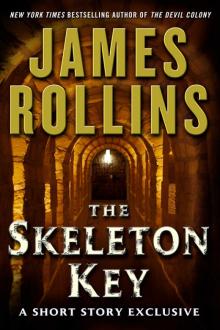 The Skeleton Key
The Skeleton Key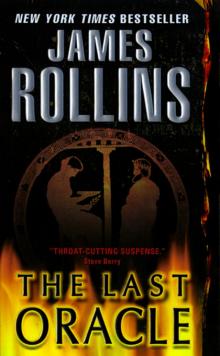 The Last Oracle
The Last Oracle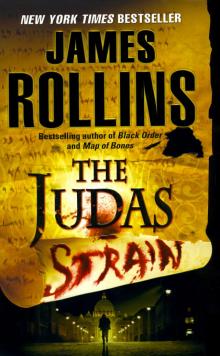 The Judas Strain
The Judas Strain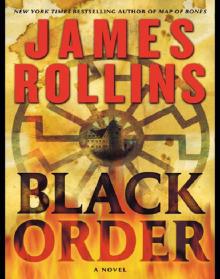 Black Order
Black Order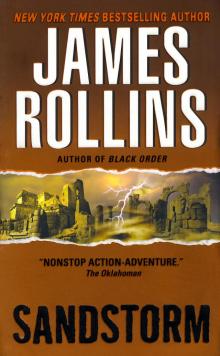 Sandstorm
Sandstorm Ghost Ship
Ghost Ship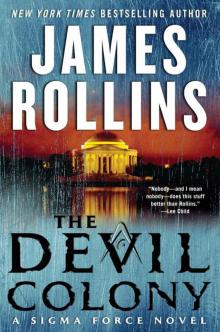 The Devil Colony
The Devil Colony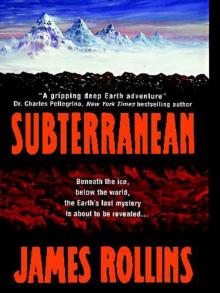 Subterranean
Subterranean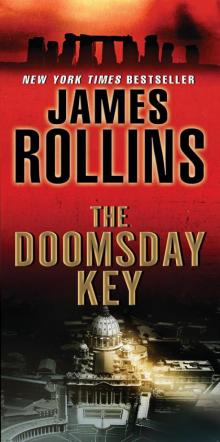 The Doomsday Key
The Doomsday Key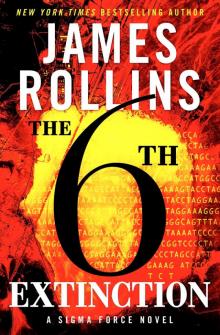 The 6th Extinction
The 6th Extinction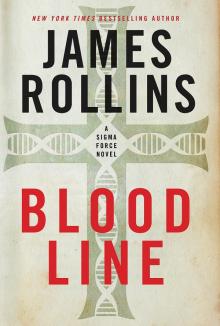 Bloodline
Bloodline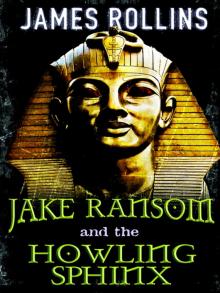 Jake Ransom and the Howling Sphinx
Jake Ransom and the Howling Sphinx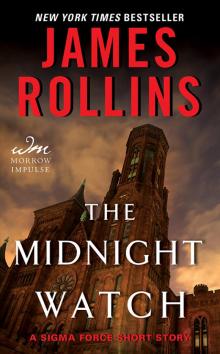 The Midnight Watch
The Midnight Watch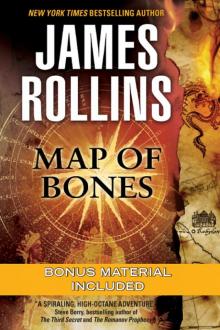 Map of Bones
Map of Bones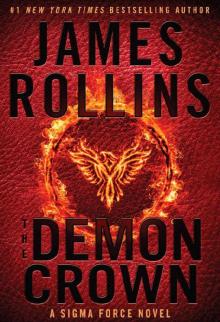 The Demon Crown
The Demon Crown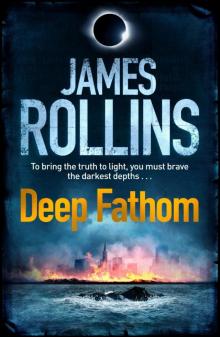 Deep Fathom
Deep Fathom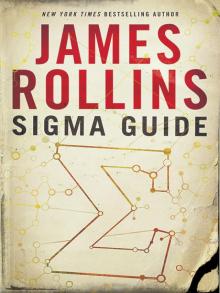 Sigma Guide
Sigma Guide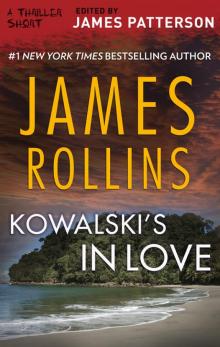 Kowalski's in Love
Kowalski's in Love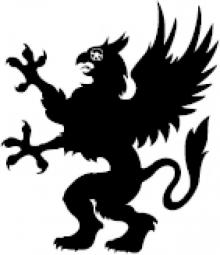 Jake Ransom and the Skull King's Shadow
Jake Ransom and the Skull King's Shadow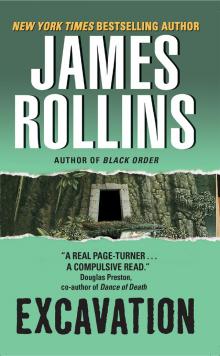 Excavation
Excavation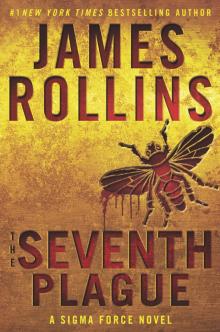 The Seventh Plague
The Seventh Plague Altar of Eden
Altar of Eden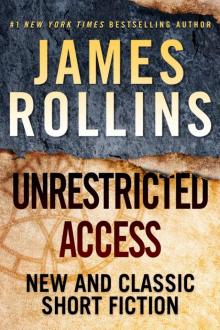 Unrestricted Access: New and Classic Short Fiction
Unrestricted Access: New and Classic Short Fiction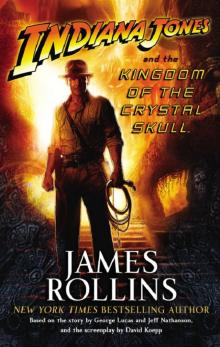 Indiana Jones and the Kingdom of the Crystal Skull
Indiana Jones and the Kingdom of the Crystal Skull Crucible
Crucible The Eye of God
The Eye of God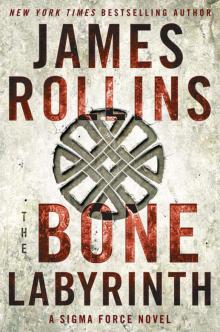 The Bone Labyrinth
The Bone Labyrinth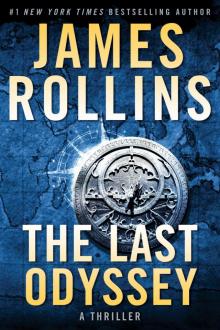 The Last Odyssey: A Thriller
The Last Odyssey: A Thriller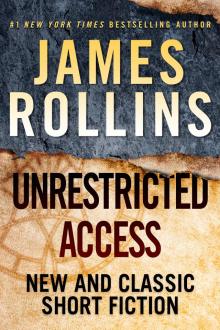 Unrestricted Access
Unrestricted Access Amazonia
Amazonia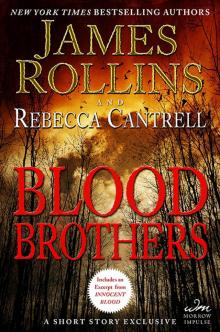 Blood Brothers: A Short Story Exclusive
Blood Brothers: A Short Story Exclusive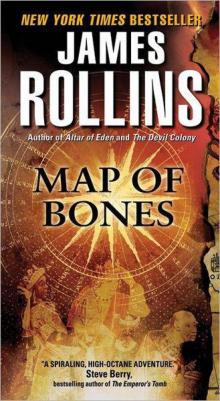 Map of Bones: A Sigma Force Novel
Map of Bones: A Sigma Force Novel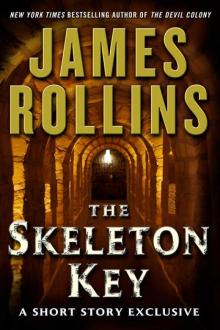 The Skeleton Key (sigma force)
The Skeleton Key (sigma force)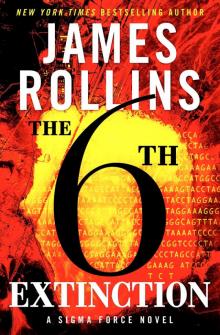 Sigma Force 10 - The Sixth Extinction
Sigma Force 10 - The Sixth Extinction Innocent Blood
Innocent Blood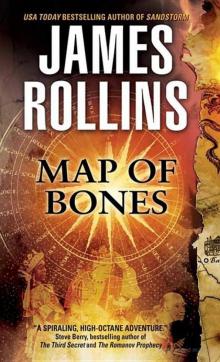 Map of Bones sf-2
Map of Bones sf-2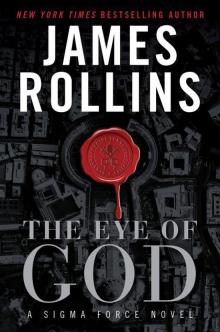 The Eye of God: A Sigma Force Novel
The Eye of God: A Sigma Force Novel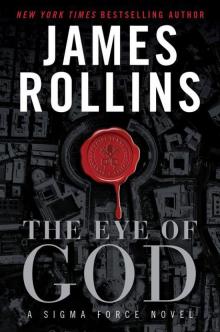 The Eye of God: A Sigma Force Novel sf-9
The Eye of God: A Sigma Force Novel sf-9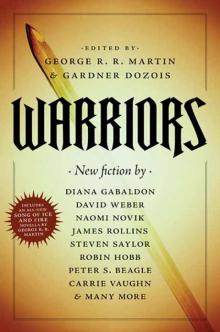 The Pit
The Pit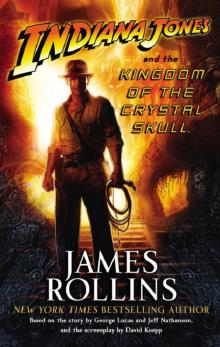 Indiana Jones and the The Kingdom Of The Crystal Skull
Indiana Jones and the The Kingdom Of The Crystal Skull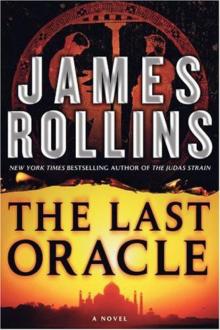 The Last Oracle (2008) sf-5
The Last Oracle (2008) sf-5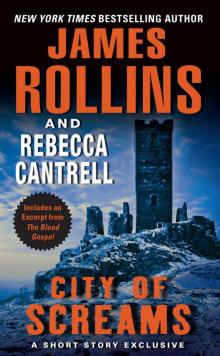 City of Screams
City of Screams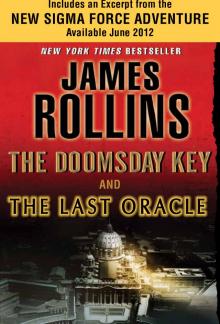 The Doomsday Key and The Last Oracle with Bonus Excerpts
The Doomsday Key and The Last Oracle with Bonus Excerpts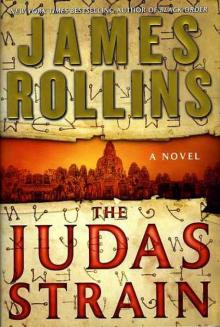 The Judas Strain sf-4
The Judas Strain sf-4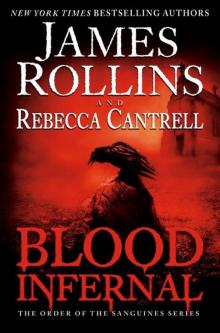 Blood Infernal
Blood Infernal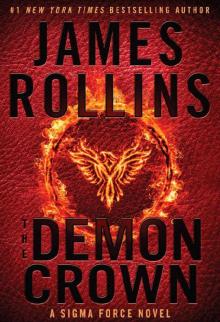 The Demon Crown: A Sigma Force Novel
The Demon Crown: A Sigma Force Novel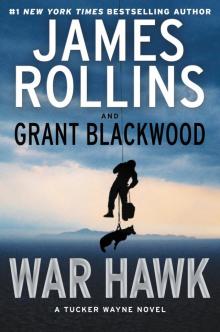 War Hawk: A Tucker Wayne Novel
War Hawk: A Tucker Wayne Novel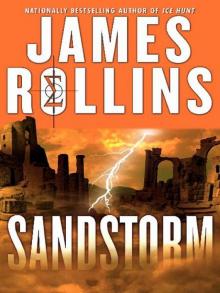 SANDSTORM sf-1
SANDSTORM sf-1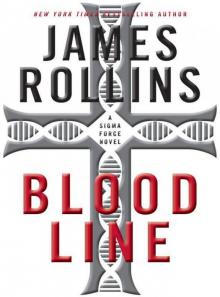 Bloodline: A Sigma Force Novel
Bloodline: A Sigma Force Novel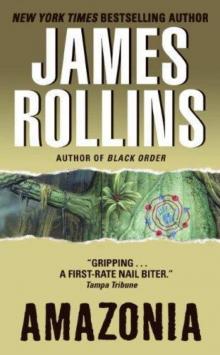 Amazonia: a novel
Amazonia: a novel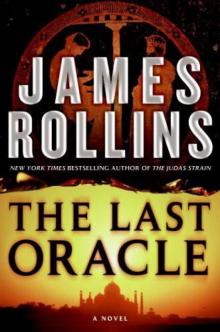 The Last Oracle: A Sigma Force Novel
The Last Oracle: A Sigma Force Novel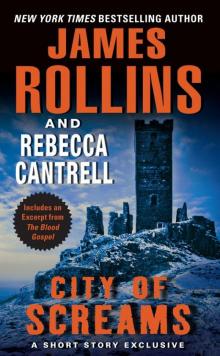 City of Screams (the order of the sanguines)
City of Screams (the order of the sanguines)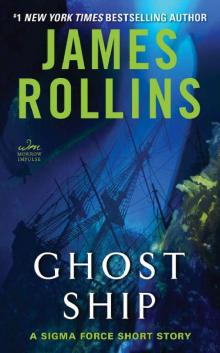 Ghost Ship: A Sigma Force Short Story
Ghost Ship: A Sigma Force Short Story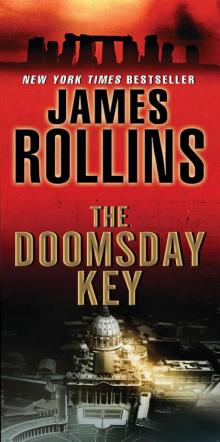 The Doomsday Key: A Sigma Force Novel
The Doomsday Key: A Sigma Force Novel